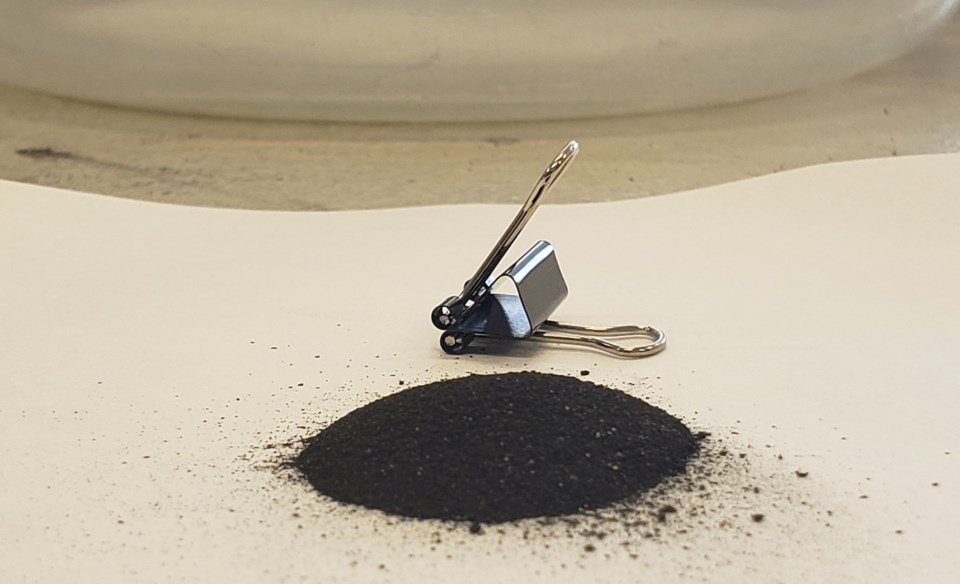Two prospective Northern Ontario critical minerals processors have signed a partnership agreement.
Rock Tech Lithium, a Canadian-German company, and Toronto’s Electra Battery Materials, owners of a Temiskaming-area refinery under expansion, have signed a memorandum of understanding to process recycled lithium.
Under the agreement, a Nov. 28 news release said Electra would supply an unspecified portion of recycled lithium from its refinery over to Rock Tech for further upgrading into a final battery-grade lithium product.
According to the release, this upgrading step is “essential” to have the necessary quality and purity for re-use in the manufacturing of electric vehicle batteries.
Material processing by Rock Tech would start in 2026 with the supply increasing over time.
Both companies have yet to reach the commercial operating stage, in Rock Tech’s case as a lithium miner and processor in the Lake Nipigon area, and in Electra’s situation in ramping up beyond a black mass demonstration-scale recycling facility in Temiskaming.
Two weeks ago, Rock Tech inked a somewhat similar supply agreement with Swiss lithium miner Arcore to source lithium mined from Bosnia-Herzegovina to feed a refining operation in Europe.
Rock Tech is proposing two lithium conversion plants. One is in the early stages of construction in Germany. A second one is planned for Northern Ontario. Rock Tech recently announced the community of Red Rock, on the north shore of Lake Superior, as the leading site for its second converter plant. Production in Ontario is tentatively scheduled for 2027.
The release didn't indicate how much revenue would be generated for Electra, a company that's on the hunt for financing to finish construction on its Temiskaming refinery.
The release also didn't confirm if processing would occur in Canada or Europe. A Rock Tech spokesperson was not immediately available for comment,
Want to read more stories about business in the North? Subscribe to our newsletter.
In Temiskaming, Electra’s black mass recycling operation remains in a trial phase, as a small batch producer, at least until the end of this year.
Black mass is a valuable powdery substance containing critical minerals that are extracted from crushed and shredded waste batteries.
Along with nickel, cobalt and manganese, lithium is one of those prized minerals that comes out of the extraction process.
Construction on Electra's larger Temiskaming cobalt refinery project was halted this year until US$60 million in government and private funding can be secured for its completion.
The partnership with Rock Tech might offer another carrot for Electra down the road through European expansion.
The release mentioned the possibility of licensing Electra's proprietary black mass technology on that continent and the “co-location of future battery recycling and lithium refining plants.”
In a statement, Electra CEO Trent Mell said partnering with Rock Tech complements their recycling strategy.
"Collaboration is crucial to create a closed loop for all critical minerals we recover in our black mass refining operation. Jointly with Rock Tech, we are excited to offer an end-to-end battery recycling solution specifically for the lithium market. The partnership is expected to generate an additional revenue stream for Electra, improve our service offering for our clients, and facilitate future growth."
Rock Tech Chief Operating Officer Klaus Schmitz said his company is thinking ahead.
"Developing localized circular lithium value chains is key for this. Electra is an important partner to realize this vision in Ontario and North America. Our collaboration unlocks an important lithium sourcing option and ensures continuous long-term supply for our plants. Our collaboration ensures that lithium recovered from the recycling of end-of-life batteries or battery manufacturing scrap is recovered, refined and returned to the battery value chain as battery-grade lithium product. An efficient, environmentally friendly and truly closed recycling loop."




